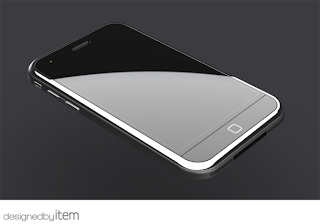Last week (yes, there is a lag going on) I finished reading the best-selling novel The Girl with the Dragon Tattoo by the Swedish author Stieg Larsson. I starting reading the book because my roommate owns it and, ever looking to build my literature repertoire, I thought it would be a good choice. It turned out to be a fantastic book -- something Swedish other than Ikea!
The Girl with the Dragon Tattoo is the first book of a trilogy that was left unpublished by a now-deceased Stieg Larsson. It's a very good thing that Larsson's heirs elected to have the works translated and published. There are two protagonists (at least in the first book) for the series: Mikael Blomkvist, a journalist and reporter, and Lisbeth Salander, a gifted hacker and very capable personal investigator. Because it is the first of a trilogy,
The Girl with the Dragon Tattoo serves as an introduction to both protagonists and also to the antagonists. Larsson is clearly a very capable mystery-novel author, as this book is composed masterfully and keeps the reader on the edge. I would present JK Rowling's
Harry Potter series as a fitting analogy, except Larsson's works are much darker and mature in content.
To give a short synopsis, The Girl with the Dragon Tattoo opens with Mikael Blomkvist being accused of libel against the powerful financier Hans-Erik Wennerstrom. Mikael is sentenced due to having published a damning article on Wennestrom, which the court ultimately finds to consist of unfounded lies. Mikael is forced to quit his position as a part-owner of the magazine Millenium, but is immediately offered an arcane opportunity to research into the disappearance of the niece of another powerful business magnate, Henrik Vanger. While all this is going on, we are also introduced to Lisbeth Salander, an antisocial female hacker who has suffered abuse at the hands of her guardians. She is characterized as incredibly head-strong, determined, and vengeful. Hers and Mikael's paths eventually cross for work purposes, and they quickly develop a hybrid bond that consists of mutual acceptance and physical intimacy. The story ends with a shocking revelation about the Vander family's history and, through Salander's help, Mikael restores his public image.
Larsson's work is clearly intended for adult audiences. While the writing is never explicit, it is not censored to exclude graphic imagery such as physical torture and sex. The author does not seem to be fazed to include them -- which lends authenticity to the work overall. For example, there are incidences of rape and incest that are not for the faint for heart. In addition, the motifs symbolized by the character (e.g. Salander as representing an idealized, strong-willing and independent woman). What makes Larsson's effort so good is the right mixture of the adult elements that is balanced by comical occurences sprinkled throughout the novel. I like the change in scenery from the other works I recently read.
Plot development is also masterfully carried out by the author. The reader is shuffled back and fourth between the two protagonists, in addition to flashback of each respective protagonist. This create the effect that makes it easy for a reader to become immersed in a character: to feel what the character is feeling, and to see what the character is seeing. I found myself at times being annoyed of the shuffling process -- only to realize later that the annoyance was due to my increasing attachment to a certain character. In a way, Larsson teases the reader by introducing bits and pieces about each protagonist until their two independent stories start converging together. The result is synergy: we like each character even more than before, since they complement the other character extremely well.
One thing I really like is the inclusion of unique cultural elements into a novel. In The Girl with the Dragon Tattoo, the setting is Sweden (duh) and the character are model representatives of their country. Larsson seem to have taken the initiative to include as much detail of Sweden as possible -- perhaps to further enthrall the reader into the novel. For example, we are told of the severe cold in the winter as well as the popularity of small wooden cabins near bodies of water. Where do you find this in the United States? The extent of cultural integration brings to mind another great novel: The Kite Runner by Khaled Hosseini.
Overall, I must say I was very impressed by The Girl with the Dragon Tattoo. Normally this can be hinted by the speed at which a book -- positive correlation between liking the book and reading sped. At times the scenes may have been a tad too dark or too explicit, but the novel is clearly the work of a literary master.














